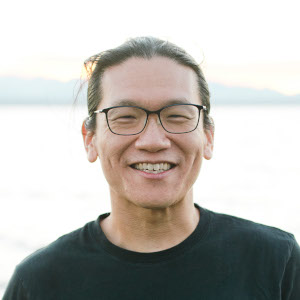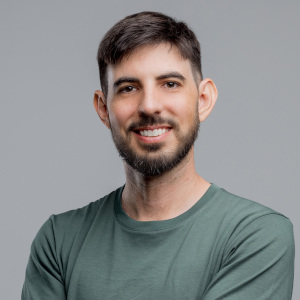About wafer.space
Budget silicon manufacturing.
Tim 'mithro' Ansell
Founder
wafer.space was founded by Tim ‘mithro’ Ansell, a pioneer in open-source silicon and a dedicated advocate for accessible chip design. With extensive expertise spanning over two decades in open-source hardware and software, Tim has significantly influenced the development and adoption of open-source FPGA toolchains and Electronic Design Automation (EDA) software. He has played instrumental roles in various community-driven projects, including OpenROAD, the FOSSi Foundation, and Google’s open-source initiatives such as SkyWater’s open PDK and the Open MPW program.
Following the collapse of Efabless in 2025, Tim saw an urgent need to rebuild trust and expand opportunities within the silicon community. Leveraging his robust industry connections, community management experience, and deep technical expertise, he established wafer.space with the mission to create a transparent, community-oriented silicon pooling service.
Under Tim’s leadership, wafer.space is committed to breaking down barriers to custom silicon fabrication, fostering collaboration, and driving forward the democratization of semiconductor technology, enabling engineers, startups, and researchers globally to innovate freely and efficiently.
Boris Murmann
Advisor
Boris Murmann is a distinguished professor in the Department of Electrical and Computer Engineering at the University of Hawaiʻi at Mānoa. Before joining UH in 2023, he served as a faculty member at Stanford University from 2004 to 2023. Boris is an IEEE Fellow and has held leadership roles within the IEEE Solid-State Circuits Society, such as serving as an elected AdCom member and Distinguished Lecturer. His research encompasses mixed-signal integrated circuit design, sensor interfaces, data converters, high-speed communication links, and embedded machine learning systems, earning him multiple prestigious awards including the SIA-SRC University Researcher Award.
Boris provides wafer.space with invaluable connections to academia and influential networks within IEEE, facilitating key partnerships and collaborations. His extensive experience and leadership within the academic and professional communities significantly enrich wafer.space’s approach to innovation and education in semiconductor technology.
Andrew 'bunnie' Huang
Advisor
Andrew “bunnie” Huang is a renowned hacker, hardware engineer, and advocate for open-source hardware and digital rights. He is recognized for groundbreaking projects like the Chumby internet-connected device and the Novena open-source laptop. His diverse expertise spans open-source silicon, hardware security, manufacturing, and user empowerment through transparent hardware. Bunnie’s influential research in security and his active involvement in promoting user empowerment through hardware transparency have earned him international recognition.
Bunnie’s deep expertise in open-source hardware and commitment to transparency greatly enhances wafer.space’s mission to democratize and innovate semiconductor technologies through open collaboration and education.
Matt Venn
Advisor
Matt Venn is an influential educator, engineer, and open-source advocate with over two decades of experience in electronic design and hardware innovation. Through his initiatives—Zero to ASIC Course and Tiny Tapeout—Matt has democratized ASIC design, enabling individuals, educators, and small teams globally to design and fabricate their own silicon chips. His workshops, courses, and community-focused projects have significantly accelerated the adoption of open-source silicon practices.
Matt’s extensive experience in community-driven education and innovation significantly strengthens wafer.space’s commitment to expanding the accessibility and global reach of open silicon fabrication initiatives.
Tom Spyrou
Advisor
Tom Spyrou is CEO of Precision Innovation Inc and chief architect and technical program manager of the OpenROAD project. With over 30 years as an EDA technologist, Tom has extensive experience in Static Timing Analysis, Logic Synthesis, Power Grid Analysis, and Floor-planning. He contributed significantly to pioneering commercial tools like PrimeTime, VoltageStorm, and the OpenAccess Database. Tom has been instrumental in driving parallel programming methodologies within EDA algorithms.
Tom’s deep expertise in open-source EDA and leadership in OpenROAD provides wafer.space with essential guidance to foster and enhance open-source design tool capabilities, accelerating accessible chip design innovation.
Sean 'xobs' Cross
Advisor
Sean “xobs” Cross is an accomplished hardware and software engineer known for innovative contributions to open-source projects, embedded software, and hardware interfaces. As creator of the Fomu FPGA development board, Sean has significantly simplified FPGA development, enabling newcomers and seasoned developers alike to easily engage with custom hardware projects. His deep expertise includes firmware, embedded systems, and secure hardware design, demonstrating a robust ability to bridge software and hardware domains.
Sean’s specialized skill set in embedded systems and FPGA innovation enriches wafer.space’s capabilities, ensuring the company remains at the forefront of hardware-software integration and open-source semiconductor innovation.






